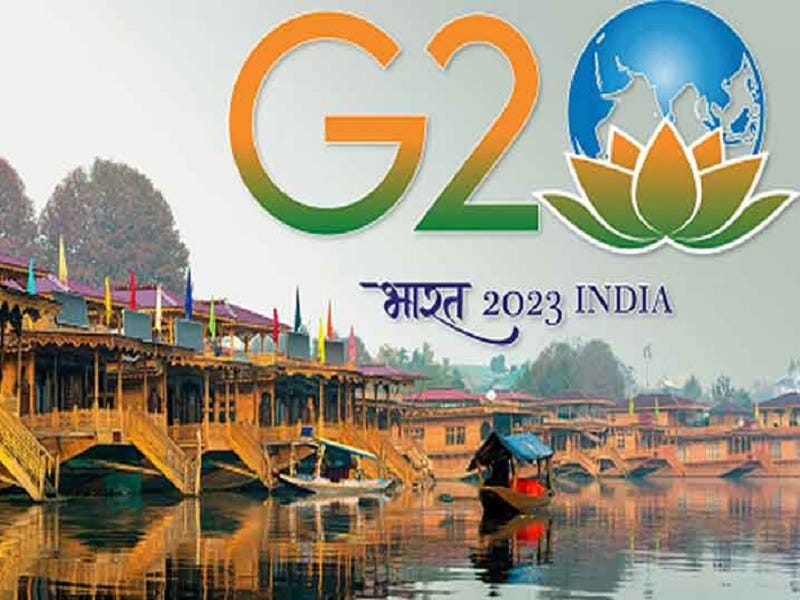China and Pakistan have an interest in jointly coordinating a media campaign to raise wider awareness of their respective claims to Kashmir, which could strengthen their strategic partnership at a crucial time while worsening ties with India.
Chinese Foreign Ministry spokesman Wang Wenbin said on Friday that his country won’t attend next week’s G20 event that India is hosting in Srinagar, which is the summertime capital of its union territory of Jammu & Kashmir (J&K). This was expected owing to its decision to reportedly skip a prior such event in Arunachal Pradesh’s state capital of Itanagar earlier this spring. Attending either of those Indian-organized events would go against Beijing’s stance on the border issue.
For those who are unaware, China controls the region of Greater Kashmir that it calls Aksai Chin but which India regards as part its union territory of Ladakh that was created after the August 2019 bifurcation of J&K. Beijing also claims almost the entirety of Arunachal Pradesh despite having only briefly controlled it during the 1962 war with India. Meanwhile, Pakistan claims all of J&K and Ladakh per its maximalist approach to this conflict, while India claims the two regions under Islamabad’s control.
China’s decision won’t impede the effectiveness of India’s G20 chairmanship, which has prioritized the Global South’s interests in line with Delhi’s envisaged informal leadership of the developing world. At worst, it might lead to China and Pakistan jointly coordinating a media campaign against India in support of their respective claims, but it’s unlikely that this will spark another border incident anytime soon. None of these three wants to risk a hot conflict since the timing is mutually disadvantageous.
They’re all focused on finding their place in the global systemic transition to multipolarity, and each also has comparatively more pressing domestic matters to focus on right now, mostly concerning the economy. Precisely for that reason, however, China and Pakistan have an interest in the aforementioned scenario of jointly coordinating a media campaign to raise wider awareness of their respective claims. Should that happen, then it’ll strengthen their strategic partnership while worsening ties with India.
The first-mentioned outcome is important for both amidst the deteriorating Pakistani Crisis. That country’s ruling Establishment, which is local parlance for its powerful military-intelligence structures, wants to deflect from accusations that they’re American stooges after unprecedentedly cracking down on the multipolar opposition led by former Prime Minister Imran Khan. They accordingly see a joint media campaign with China over Kashmir as a means of signaling that they haven’t sold out to the US.
As for China, it aims to prove its political importance to that selfsame American-aligned Establishment by amplifying Pakistani narratives about this unresolved conflict, which it believes could help decelerate their pro-US pivot over the past year. This also serves to remind India that those two’s border dispute involves Pakistan too, which takes China’s side on this issue and vice versa. The purpose of signaling this is to put additional pressure on India to agree to some sort of compromise with both.
The reaffirmation of the Chinese-Pakistani Strategic Partnership through these media-driven means will worsen their ties with India like was written above, but that outcome could in turn advance each of their interests as well so long as it remains manageable. China can then imply that India is an obstacle to regional peace and thus complicating the long-term prospects of multipolarity in Asia, with the innuendo being that it’s doing the US’ divide-and-rule bidding there whether consciously or not.
For its part, the Pakistani Establishment can try to redirect the disaffected masses’ anger away from itself and towards India by playing the so-called “Kashmir Card”, which incorporates “The Trinity” of issues integral to this country’s identity: national security, patriotism, and Islam. Pakistanis of all partisan dispositions have rallied around this cause since independence, however, that doesn’t mean that they’ll do so in the way that The Establishment expects by relieving pressure on them as a result.
The combined effect of China and Pakistan’s worsening ties with India in the scenario that they jointly coordinate a media campaign in support of their respective claims to Kashmir after the upcoming G20 event in Srinagar is that it’ll sharpen preexisting divisions in South Asia. This could also put pressure on those countries like Russia and the US, whose delegates plan to attend the aforesaid event, since they’ll be indirectly portrayed as endorsing what’s presented by those two as India’s hegemonic position.
The Sino-Russo Entente isn’t expected to be affected by this since they’ve already unofficially agreed to disagree on this issue while the Russian-Pakistani oil deal will likely remain on track for the same reason. As for the US’ attempt to revive talks with China on a New Détente, this will probably continue proceeding despite their disagreements over Kashmir, which pale in comparison to other disputes. Furthermore, the US is predicted to retain its predominant influence over the Pakistani Establishment.
Nevertheless, the optics of China and Pakistan deliberately or inadvertently implying Russo-American support for India’s allegedly hegemonic aspirations could be exploited by agenda-driven actors (whether in any of those five countries or elsewhere and irrespective of their possible state ties) to confuse the masses. Many in the Alt-Media Community and the Mainstream Media have a black-and-white view of international events so they might struggle to comprehend how close partners can agree to disagree.
It therefore remains to be seen what impact this potential joint media campaign could have on popular perceptions within each information ecosystem, which should be closely monitored by interested observers for any signs of change. If there’s a major shift one way or another, then it could create the opportunity for policymaking factions in any of these states to advance their respective agenda, which could further complicate the already complex balance of interests between these five states.




